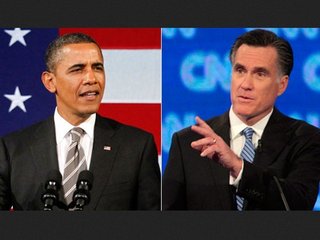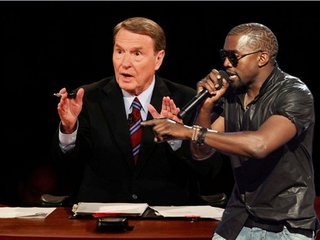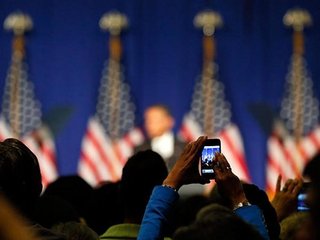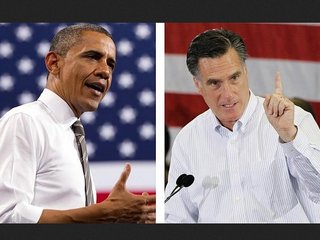
1 in 10 people "dual-screened" the Presidential debate
11% of Americans got debate coverage on TV and from the Web or mobile device simultaneously
 The Vice Presidential debate is this evening. I, for one, am looking forward to some zingers and snappy one-liners. #Notreally
The Vice Presidential debate is this evening. I, for one, am looking forward to some zingers and snappy one-liners. #Notreally
I’m actually looking forward to the Twitter coverage of the debate more than the debate itself. And I’m not the only one who’s going to be checking the tweet-o-sphere to see what other people are saying. Fully 36% of Americans will be going online to get debate coverage from websites or social networking sites, according to a study released Thursday by the Pew Research Center for the People and the Press.
Naturally, there are those who may or may not watch the debates live, but who catch snippets of coverage online while at work. It’s pretty hard not to. But there are those select hyper-dedicated few who park it on the couch with their phone and/or computer to watch the debates and the coverage at the same time. Those “dual-screeners” make up a sizable chunk of the debate-viewing audience. A full one in ten Americans watched last week’s debate live while following coverage online at the same time, while 3% watched the debates live exclusively online.
Of course, those under 40 are more likely than those over 40 to be dual-screeners, with 32% of those ages 18-39 saying they watched last week’s debate either exclusively online or on both TV and online. Not as many as you’d expect were willing to share their thoughts online, though—only 8% of those 18-39 said they shared their debate reactions on a social networking site as the debates were happening.
What difference does it make if people are dual-screening it or going solo on the tube? While most Americans continue to get their debate coverage primarily from television, the fact that 11% are watching the debates while getting online coverage at the same time points to the growing use of mobile and social technology to get involved.
Earlier this week, the Pew Internet and American Life Project released a study showing 35% of voters with smartphones use their devices to look up whether or not something they heard about a campaign or candidate was true. That’s amazing. A few years ago, before the advent of the smartphone, if you heard something you weren’t sure about, you had to make a mental note to check on it later when you got to your computer, but then you inevitably forgot and simply lived with your doubt.
If one in ten people are dual-screening the debates, it’s fair to assume that they’re looking for facts and accuracy. To be able to get information as soon as a dubious number or factoid emerges from a candidates petroleum-jellied mouth means politicians—especially presidential candidates—can’t just go making up their own facts and numbers in the hopes that people will forget to look it up. Mobile and social technology is heralding a new level of political accountability.
Related News


Debates break the record in most tweeted event

35% of voters with smartphones use device to fact-check

